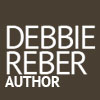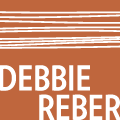 As a writing coach, many of my clients are first-time authors writing, or getting ready to write, their first book.
As a writing coach, many of my clients are first-time authors writing, or getting ready to write, their first book.
One of the most important, and basic, questions would-be authors need guidance answering is this:
Should I self-publish or pursue traditional publishing?
In today’s post I’m going lay it all out and share with you everything I share with my clients.
Not just the pros and cons of each type of publishing scenario, but the important questions you as a writer need to consider in order to make the decision that is most in alignment with your dreams and goals.
So without further ado, I present to you my definitive post on how to figure out the best endgame for your book.
TRADITIONAL PUBLISHING
What it is: Traditional publishing refers to selling the rights for your manuscript to an established publishing house for publication. The sales of manuscripts are usually handled by a literary agent, who negotiates the author’s contract for a fee (typically 15% of all monies earned through the sale).
Pros:
- Advance & Royalty—an advance payment to write the book once the contract is signed, as well as royalties on each book sold once the advance is repaid
- Editorial Support—an editorial team dedicated to making the book as strong as possible, including lead editor, copyeditor, and proofreader
- Design Support—cover and interior design and layout for your book
- Production—production of hardcover, paperback, and/or ebooks handled in-house
- Distribution—distribution to Barnes & Noble, independent bookstores, libraries, Amazon, etc., through sales catalog and often through a dedicated sales rep
- Publicity Support—the publicity group will send out advance reader copies (ARCs) to their press list and, for more prominent releases, spearhead promotional efforts for the book
- Media Coverage—the ability to be reviewed and covered by major media
- Legitimacy—traditionally published books are considered by most media outlets and others to be more legitimate than self-publishing
Cons:
- Advance & Royalty—much lower royalty rates than with self-published books, and rates for first-time authors can be especially low
- Timeframe—the timeline can be quite long, often between two to three years from the point a book is sold until publication
- Loss of Control—the publisher will have final say on things like title, cover design, interior design, and more
- Tough Market—it’s becoming increasingly difficult to sell books traditionally, both for new and already published authors
SELF-PUBLISHING
What it is: Self-publishing refers to publishing your book either through your own publishing company, digitally, or through a pay-for-publish company at your own expense. There are myriad possibilities for self-publishing, including Amazon’s Kindle Direct Publishing, full-service “vanity presses,” and creating your own publishing company.
Pros:
- Timeframe—writers can get their book out into the world as quickly as they’re able to write it and digitally upload it
- Maintain Control—the ability to have control over every aspect of your book, including interior design, cover design, final say on manuscript, length, paper stock, and more
- Potential for More Income—a much higher royalty rate per book sold, which works well for authors with a large built-in audience and/or distribution network
- Copyright—you may maintain the copyright for your book
Cons:
- Upfront Costs—writers may spend a lot of money prior to publication for costs relating to copyediting, design, and production (less for digital only)
- Distribution—because of the high number of self-published books and the shrinking shelf space at brick and mortar bookstores, getting a self-published title in bookstores is incredibly difficult
- Legitimacy—self-published titles are viewed by many as less legitimate than traditionally published books due to the lack of quality control
- Media Coverage—it’s rare for self-published titles to receive coverage from mainstream media outlets
That covers many of the pros and cons of both publishing scenarios, however knowing what the best path for YOUR book is involves more than just knowing these facts.
When I work with clients, I encourage them to take the time to thoughtfully, and HONESTLY, explore the following questions. If you’re trying to figure this out for yourself, then grab a pen and paper and journal your answers:
QUESTIONS TO CONSIDER
1. What is my intention for writing this book? To help people? To share my story with as many people as possible? To prove that I can do it? What else?
2. Am I writing this book to support my business / extend my brand? Do I want to use it as a calling card? For my work with clients? To sell at speaking events?
3. Does my dream for publication involve being seen as an expert in my field in the mainstream media? Do I have visions of Today Show appearances or reviews in the New York Times?
4. Is having my book available in a bookstore a priority for me? Or is the priority simply having the book available in some form for those who want to read it?
5. Does my story / idea have the potential to resonate with a broad audience in a meaningful way? Or am I writing this for a niche audience, or my family, or simply for myself?
6. Does my book offer a fresh or interesting perspective on a theme that has already found an audience? Is there an existing body of work that my book compliments or am I being a pioneer?
7. What is my ultimate goal? To get my story out into the world no matter what? To traditionally publish no matter what?
8. Do I have an audience ready and willing to support my book?
Once you’ve answered these questions, go back up and reread the pros and cons for each type of publishing. If you answered honestly, hopefully you’ll have a strong gut response about which is the best option for you.
Do you still have questions? Email them to me and I’ll answer them in a future post!
* * * * *
READY TO WRITE YOUR BOOK PROPOSAL? Enrollment for Write Your Irresistible Book Proposal—my virtual class that walks writers through the process of writing a sellable book proposal, ends on APRIL 5. Find out more here.

